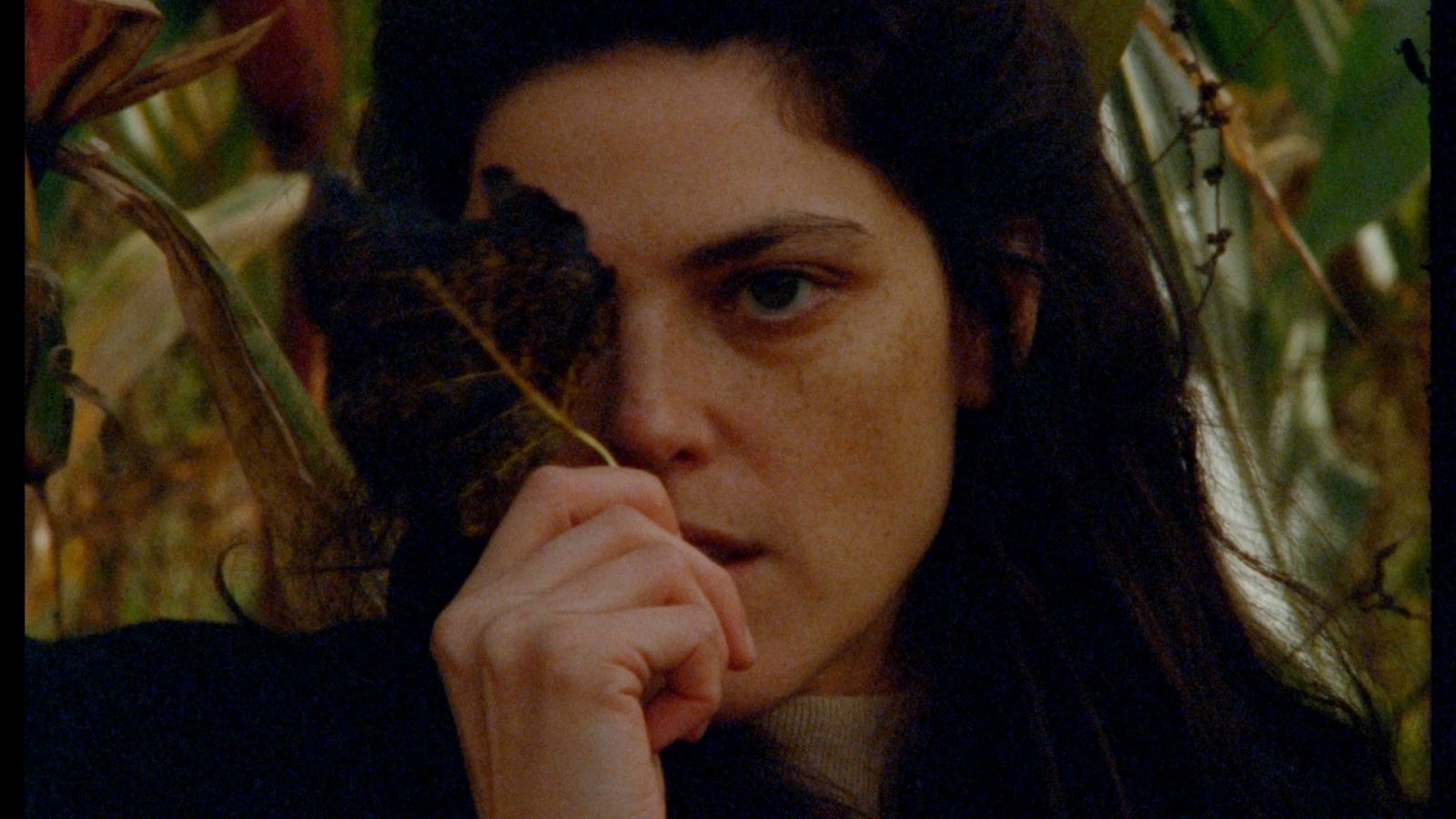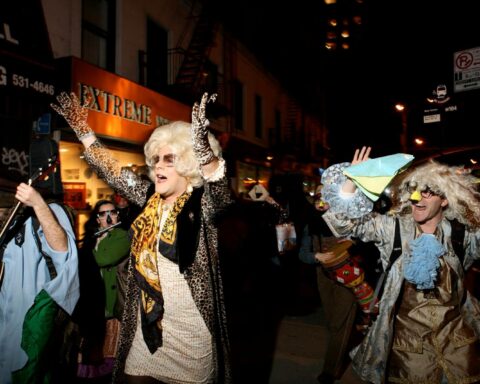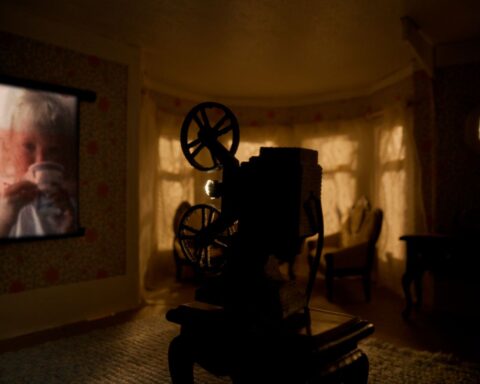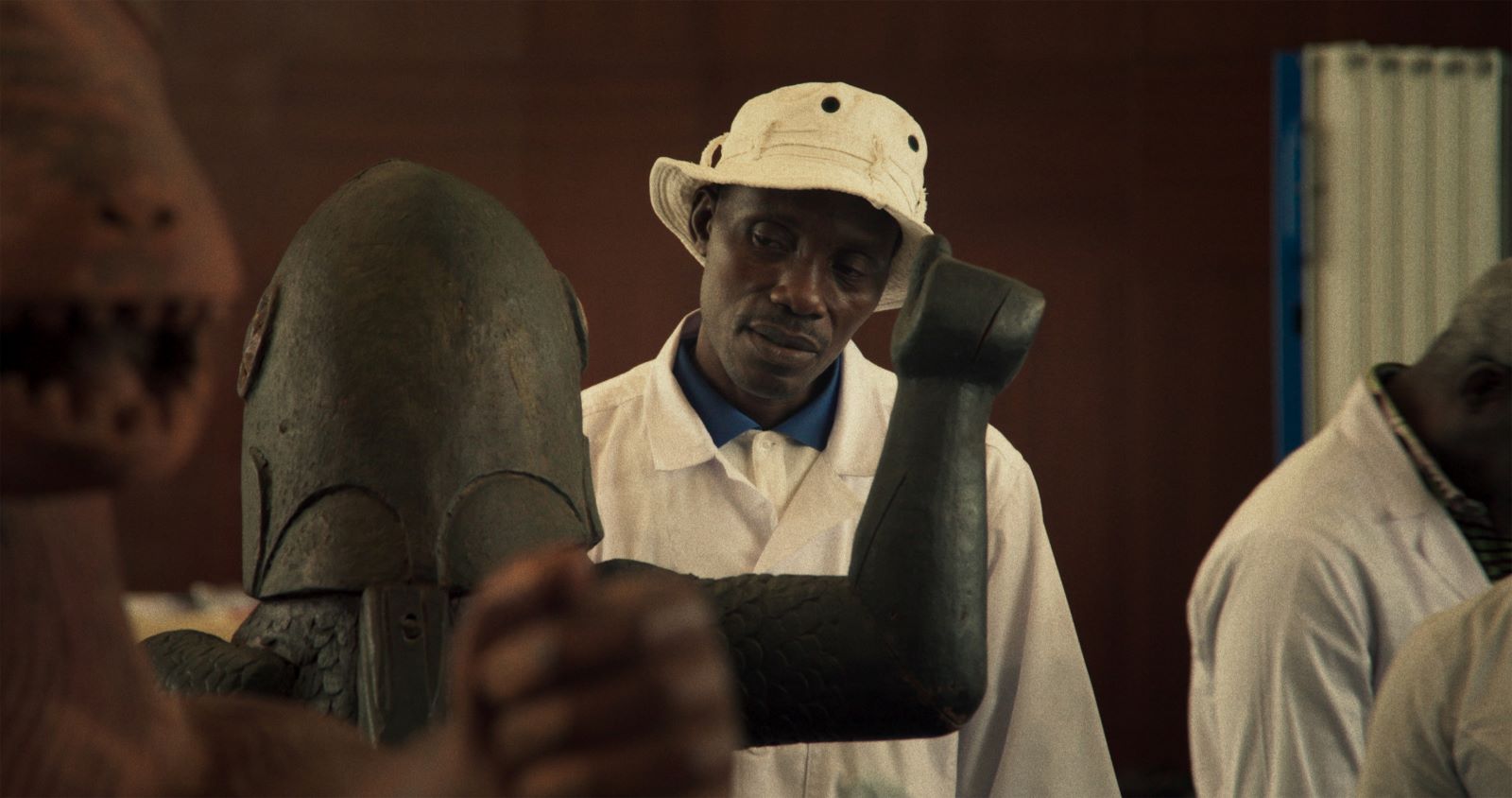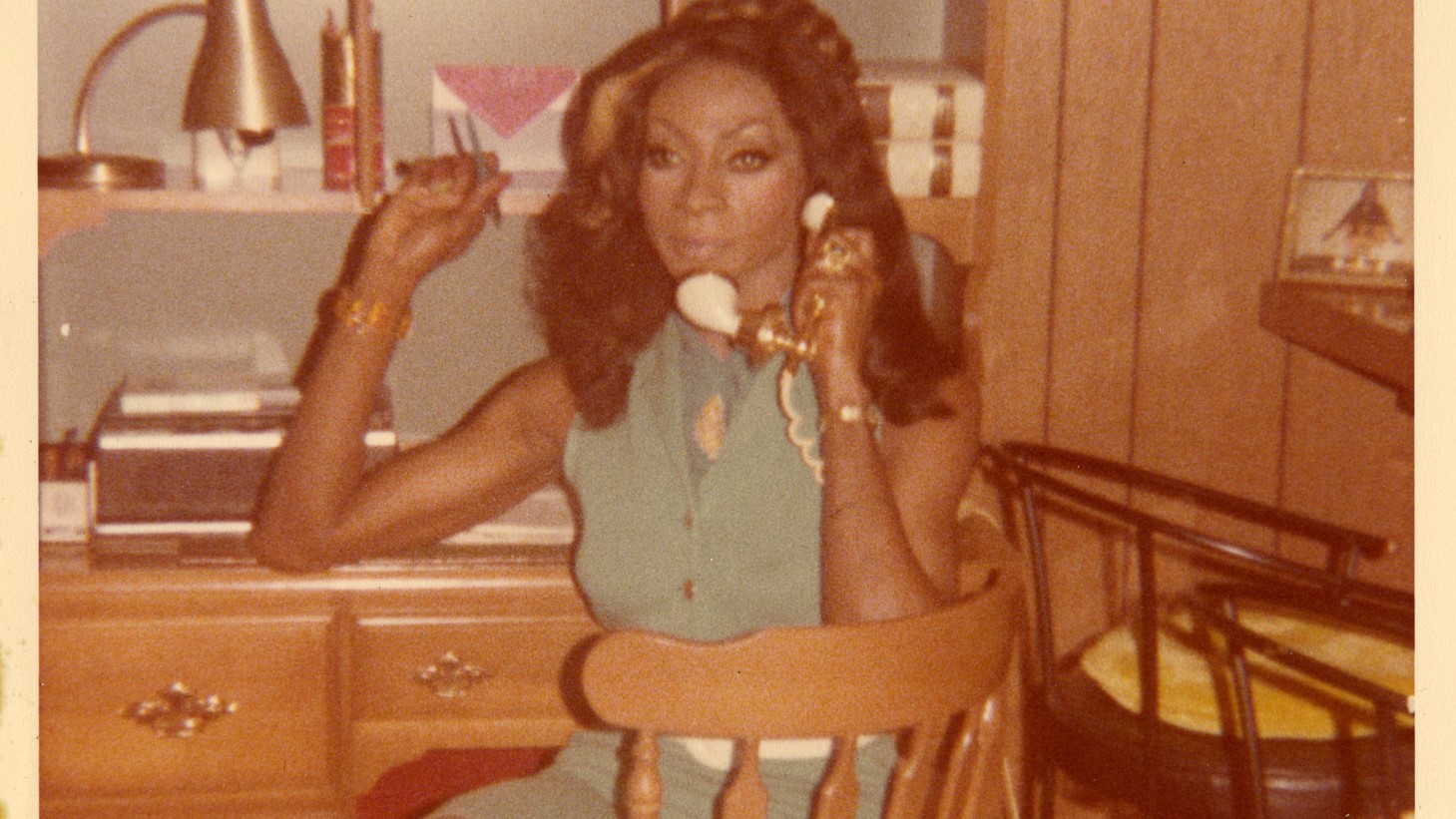Invention
(USA, 72 min.)
Dir. Courtney Stephens
During the peak of the pandemic, actress Callie Hernandez lost her father to COVID-19. He was an eccentric patriarch in the eyes of his two daughters, having devoted much of his life to technological innovation and spirituality. Following their father’s passing, Callie and her sister found a sculptural machine in one of his storage units, alongside a niche collection of new age medical devices including lasers and a polygraph machine. Other rare collectibles included assorted illegal feathers, magic wands, and a full VHS archive that featured their father’s miscellaneous appearances on morning shows and natural language processing conferences. For Hernandez, the discovery served as a creative awakening.
Channelling her grief into a meditative hybrid-film with director Courtney Stephens, the low-budget reverie Invention serves as a fascinating tribute to Hernandez’s late father. In the film, she plays a version of herself who shares the same name. The fictionalised Callie Hernandez finds remnants of a shelved prototype in her father’s suburban home. Capturing a cyclone of mystery and conspiracy with remarkably low-stakes, Invention gradually evolves into a lackadaisical hang-out film that reflects on the woes of capitalism and the pursuit for human connection. The film, however, meanders on occasion with its cast of suburban characters engaging in repetitive conversations regarding Dr. Hernandez’s legacy and unrealised dreams.
Invention doesn’t shy away from including commentary that reflects on the commercialisation of health care. Set in the Berkshires, a lush highland located in western Massachusetts, the picturesque location complements the characters’ melancholy. The fictionalised companions and acquaintances of Hernandez’s father reflect on the game-changing potential of his ambitious electro-magnetic healing device. Ultimately, the titular invention is a narrative ploy that’s used to spotlight two different threads.
The first is a commentary on the American dream. As Hernandez speaks with her father’s former investors, the design of the invention emphasises the pitfalls of a capitalist system. No matter how much a revolutionary product can serve the greater good of society, there cannot be innovation without the necessity of supply and demand. Rendered futile in the eyes of an industry that prefers to exploit its consumers, rather than serve their well-being, Hernandez’s fictional McGuffin is reminiscent of real-life issues. As rates for basic medical care such as Insulin increase everyday within the crumbling American healthcare system, Stephens’ commentary confronts the exploitation of the broken system.
The other narrative thread focuses on the importance of connections. Stephens follows Hernandez’s pursuit for answers, deciphering her father’s fabricated past in the process. The film slowly reveals his philanthropic intentions post-mortem. Clips from the aforementioned VHS archive are dispersed in between languid conversations. The analogue glow of her father’s face serves as a form of mythologisation, as his legacy and visage are recontextualised within the fictional narrative threads. The lines between truth and fiction are blurred, as the flux of documentary traditions amplify the intimacy shared between Hernandez and her real-life father.
Invention emphasises the necessity for human connection with other relationships featured in the film. At one point, Hernandez befriends the nephew of an antique shop owner. Their brief autumn fling haphazardly detours the heavy subject matter. While their “situationship” offers moments of charm and levity, the conversations that stem from the subplot reiterate Hernandez’s alienation within the small-town setting. In the process, the relationship feels oddly superficial and convenient to the film’s thematic explorations. The two-dimensional love-interest that’s mixed into the equation only undercuts the impact of Hernandez’s hereditary discoveries.
In one of the film’s more intimate moments, Hernandez roams an Alice in Wonderland-themed cornfield maze with her newfound partner. Through constant misdirection, the characters find themselves lost in the heart of the labyrinth. The sun shines brightly as they sit down and converse. The maze serves as a simplistic visual metaphor that encapsulates Hernandez’s grieving cycles. Her character is lost in an unwinding puzzle, where she gives into the beauty of the landscape. Shot on stunning 16mm colour film, the lush colours complement Hernandez’s perspective.
Unfortunately, the film begins to fall apart when it repeats similar themes with its cast of eccentric characters. The conceit can’t sustain even a 71-minute feature. Invention might have worked more effectively as a mid-length project: A more concise version could accentuate the same themes with a stronger emotional punch.
Aspects of the meta-textual framework, however, are affecting, even if they’re not fully realised. Hernandez plays with the self-referential format that effectively captures the passion behind her father’s real-life medical obsessions. There’s hope for re-invention at every corner in Stephens’ beguiling feature—even if it mirrors the late doctor’s misfortune of not always hitting the mark.




